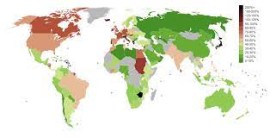Seminario 22/04: Concepción González García (UCAM): Fiscal Consolidation in Heavily Indebted Economies
Información
- Ponente: Concepción González García
- Fecha: 10/Mar/2022 - 12:30 horas
- Lugar: Semiario del Departamento de FAE de la Universidad de Murcia

In this paper, I build a dynamic general equilibrium model calibrated to the U.S. economy to study the macroeconomic effects of alternative fiscal consolidation strategies in a context where the private sector is heavily indebted. Fiscal consolidation is defined as a permanent reduction of the public debt-to-GDP ratio by means of government spending cuts or tax hikes. I show that in the long run, a fiscal consolidation entails output benefits that are dampened when private debt is high. This effect occurs independently of the fiscal instrument used to stabilize debt. In the short-run, I find that a fiscal policy that rises labour or capital tax rates induces deleveraging in the private sector, which amplifies temporary output losses due to fiscal consolidation policies. By contrast, a fiscal consolidation achieved by government spending cuts or consumption tax hikes facilitate the repayment of private debt, thereby mitigating the negative output effect associated with a public debt reduction. Finally, regarding social welfare I find that a fiscal consolidation brings higher welfare gains when government spending or consumption tax rates adjust in an environment of high private debt. However, it increases the social welfare loss when capital or labour tax rates adjust to meet the public debt target.

